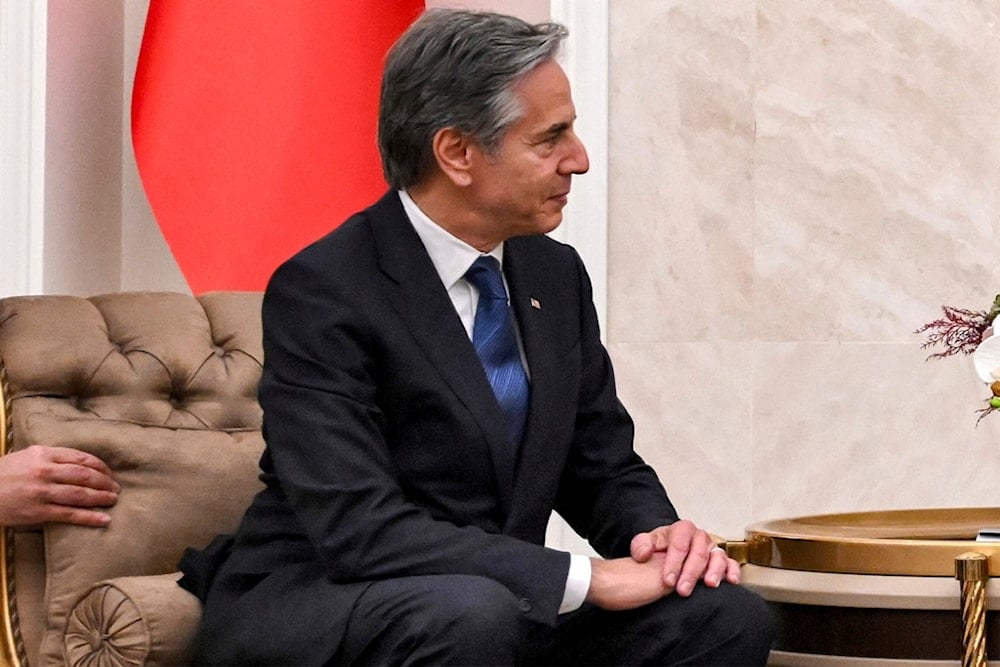Blinken visits Turkiye amid regional trips on Syria future
US State Secretary Antony Blinken visits Turkiye as he continues his region-wide trip to address the situation in Syria.
-

US Secretary of State Antony Blinken during a meeting with Turkish President Recep Tayyip Erdogan at Ankara Esenboga Airport on December 12, 2024. (AP)
US Secretary of State Antony Blinken arrived in Turkiye late Thursday, engaging in immediate talks with Turkish President Recep Tayyip Erdogan amid heightened tensions between Washington and Ankara over US-backed Kurdish forces in northern Syria.
Blinken's visit follows discussions in Jordan regarding the fallout from the collapse of the Syrian government. The focus in Turkiye is expected to center on Ankara's security concerns, particularly its opposition to the US-backed Syrian Democratic Forces (SDF), a Kurdish-led group that Turkiye views as an extension of the proscribed Kurdistan Workers' Party (PKK).
Blinken had previously outlined four key principles for Syria's transition and new leadership, "Clear commitments to fully respect the rights of minorities, facilitate the flow of humanitarian assistance to all in need, prevent Syria from being used as a base for terrorism or posing a threat to its neighbors, and ensure that any chemical or biological weapons stockpiles are secured and safely destroyed."
Ahead of his trip, Blinken defended the SDF, calling their role "critical" in preventing a resurgence of the ISIS terrorist group.
Steadfast opposition
Turkiye, however, remains steadfast in its opposition, prioritizing the eradication of the SDF, which it considers a terrorist organization. The divergence in US and Turkish policies has been a source of ongoing strain between the NATO allies.
Recent clashes in northern Syria have highlighted the complexity of the situation. Over the weekend, Turkiye-backed forces seized the northern city of Manbij from the SDF, leading to heavy fighting near the Syrian-Turkish border. At least 22 SDF fighters were killed and 40 others wounded. The two groups later agreed on a ceasefire in Manbij on Wednesday through US-mediation.
Late on Thursday, the General Commander of the SDF, Mazloum Abdi, emphasized the importance of the Syrian Autonomous Administration's involvement in the political process as a pathway to resolving the protracted Syrian crisis. Abdi also expressed hope for the current ceasefire to evolve into a comprehensive agreement, marking a significant step toward long-term stability in the region.
"We hope that the ceasefire would develop into a comprehensive agreement," he stated, underlining the need for broader cooperation to achieve peace.

 2 Min Read
2 Min Read








